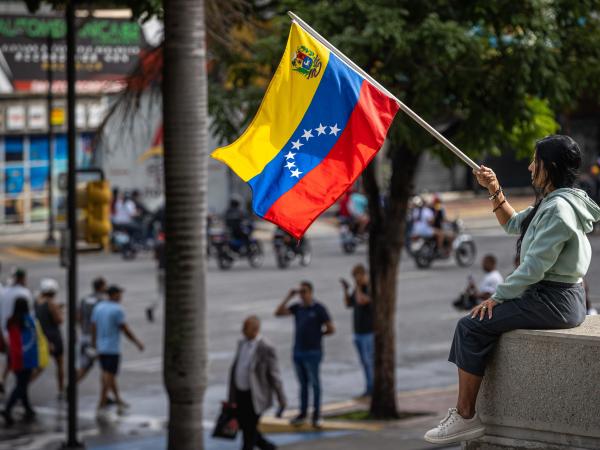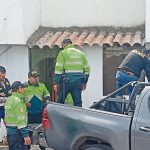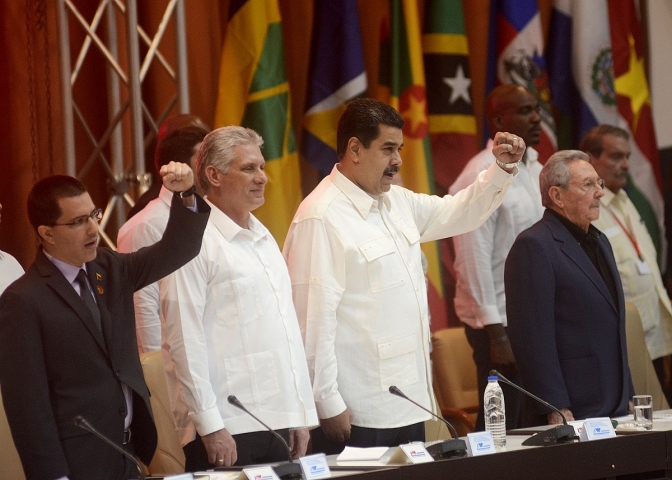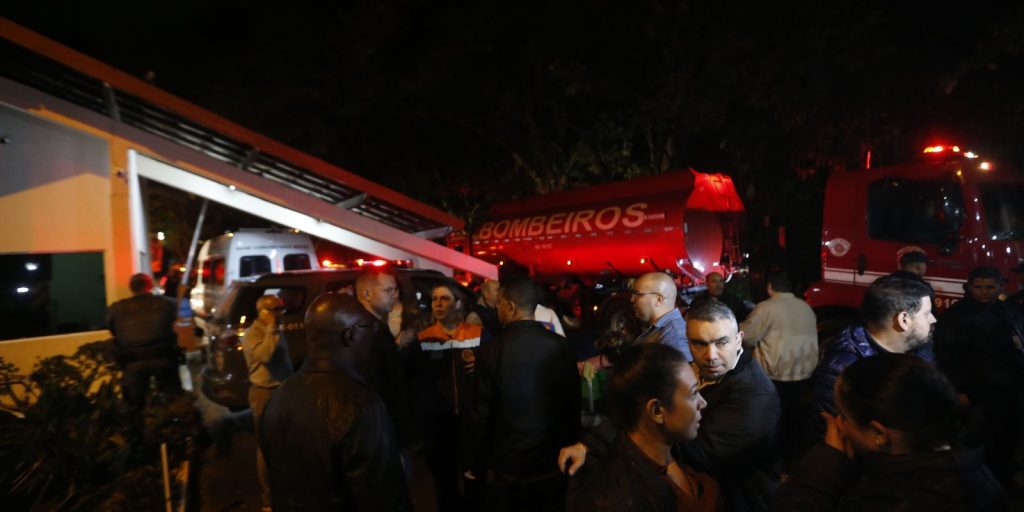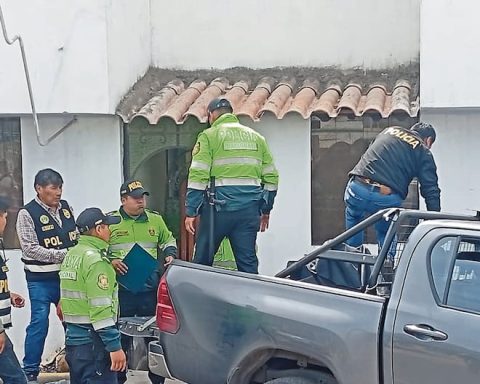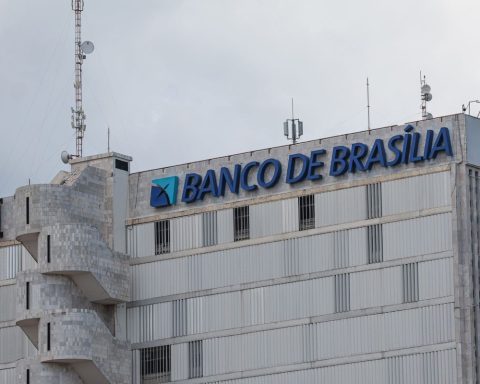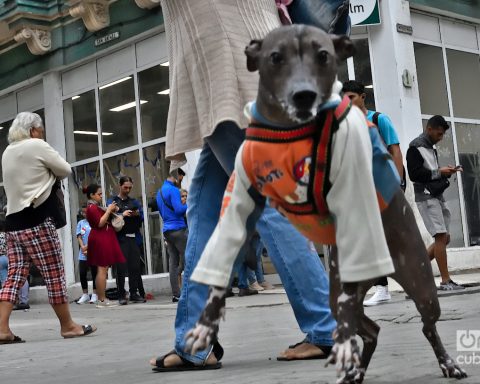In a context marked by political and social unrest in Venezuela, The effects of the electoral crisis of July 28 continue to resonate beyond its borders.
(Further: Halfway through his term, disapproval of Petro’s management stands at 58.3%).
In Colombia, where bilateral relations have been a sensitive issue, the recent survey of Invamer provides a detailed overview of How Colombians perceive the situation in the neighboring country and the policies adopted by Gustavo Petro’s government to confront it.
The restoration of diplomatic relations with Venezuela, one of President Petro’s first decisions after taking office, has generated diverse opinions among citizens. While a significant majority supports this rapprochement, a considerable segment of the population expresses its disagreement, reflecting the tensions and uncertainty that persist around Venezuelan influence in the region.
(Read: ‘If countries prepare, Venezuelan migration can be positive’).
Furthermore, the possibility that Colombia could face a fate similar to that of Venezuela is a latent concern among some Colombians.
For its part, according to the study, 63.3% of respondents agree with President Gustavo Petro’s decision to reestablish relations with Venezuelawhile 33.6% are opposed, and 3.1% have no opinion on the matter.
(See: Migration wave in Venezuela warned if Maduro remains in power).
Venezuelan protests against Maduro.
EFE
The survey also addressed the concern that Colombia could face a situation similar to that of Venezuela in the futureAlthough 50.9% of respondents agree with this statement, this percentage represents a decrease of four percentage points compared to May 2023. On the other hand, 47.2% of respondents do not share this concern.
Regarding the citizens’ position on the reception of Venezuelan migrants, the 43.7% of Colombians support the idea that the government should provide refuge to those fleeing the crisis in their countryHowever, 53.6% oppose this measure, reflecting the complexity of the immigration debate in the country.
(Further: Boric claims that Maduro is attempting ‘electoral fraud’ by not showing the election records).
The perception of Venezuelan citizens who have arrived in Colombia due to the migration crisis was also evaluated. Only 34.4% of respondents have a favorable opinion of them, while 58.6% express an unfavorable opinion.
These results offer a clear view of Colombian public opinion regarding the Venezuelan crisis and its repercussions in Colombia, highlighting the divisions and concerns that persist around integration policies and support for Venezuelan migrants.
Technical data sheet
COMPANY THAT CONDUCTED THE SURVEY: INVAMER SAS
NATURAL OR LEGAL PERSON WHO ORDERED IT: Caracol News and Blu Radio.
SOURCE OF FUNDING: Caracol News and Blu Radio.
GOALS:
❑ Evaluate the state of mind of the country as a whole and for each of its regions, including urban and rural areas, as well as capital and non-capital municipalities.
❑ Measure the President’s approval rating and the image of individuals and institutions in Colombia.
❑ Identify, according to public opinion, what is the main problem that Colombia has at the time of measurement.
❑ Know the public opinion on current events (current events).
❑ Observe the level of acceptance of people regarding certain laws, proposals or statements.
UNIVERSE:
Men and women aged 18 and over, from all socioeconomic levels nationwide, with urban and rural coverage (excluding the departments formerly called “National Territories”).
SAMPLING FRAME:
In the first phase of sampling, a National Census broken down by municipalities. In the second phase, a planimetry of each of the selected towns. In the third phase, households in the selected blocks in each town. In the fourth and final phase, people aged 18 or over, residing in each household. This sampling frame covers 100% of the target group.
SAMPLE SIZE AND DISTRIBUTION:
A total of 1,200 surveys were conducted and distributed in the following municipalities: Arbelaez, Armenia, Ayapel, Barrancabermeja, Barranquilla, Bethlehem, Bello, Bogota, Bucaramanga, Cali, Candelaria, Carepa, Cartagena, Cordoba, Cucuta, Dosquebradas, El Tambo, Espinal, Philadelphia, Fresno, Fusagasuga, Gachala, Ibague, La Cruz, La Dorada, La Victoria, La Virginia, Lebrija, Wept, Madrid, Maicao, Manaure, Medellin, Montelibano, Monteria, Mosquera, Neiva, Palmira, Pereira, Popayan, Pueblo Nuevo, Sabaneta, San Roque, Seville, Silvia, Soacha, Soledad, Tenjo, Tumaco, Turbaco, Valledupar, Villa De Leyva, Villanueva, Villavicencio (54 municipalities in total, of which 15 are Capitals). To adjust the sample distribution to the actual distribution of the universe by region and size, weighting factors were applied. This sample size is in accordance with the proposed sample size.
SAMPLING SYSTEM: A multi-stage sampling was carried out as follows: in the first stage, systematic random selection of 75 sample points throughout the country. In the second stage, systematic random selection of four blocks or villages in each sample point. In the third stage, systematic random selection of four households per block or village. In the fourth stage, simple random selection of one person aged 18 or older residing in the household.
MARGIN OF ERROR: the margins of error within 95% confidence limits are: for the total sample of 1,200 surveys +/- 2.83%; for the total sample of Bogotá +/- 6.80%, North Caribbean +/- 6.33%, Central East +/- 5.77%, Antioquia/Eje Cafetero +/- 6.33% and South West +/- 6.55%; for the total sample of men +/- 4.01% and women +/- 3.99%; for the total sample of people aged 18 to 24 years +/- 7.61%, 25 to 34 years +/- 6.02%, 35 to 44 years +/- 6.81%, 45 to 54 years +/- 7.21% and 55 years or older +/- 5.05%; for the total sample of stratum (1-2) +/- 3.34%, stratum (3) +/- 6.46% and stratum (4, 5 and 6) +/- 9.34%; for the total sample of the urban area +/- 3.14% and rural +/- 6.55%; for the total sample of Capital municipalities +/- 4.08% and non-Capital municipalities +/- 3.92%.
DATA COLLECTION TECHNIQUE: personal surveys in the respondent’s home via mobile devices (tablets).
DATA COLLECTION DATE: from July 26 to 29, 2024.
NUMBER OF SURVEYORS: 53 interviewers participated in the study.
VALIDATION METHOD: 100% of the surveys conducted were reviewed and 10% of them were supervised.
TOPICS REFERRED TO: image of Colombian characters and institutions, main problem to be solved in the country, acceptance of laws, proposals or statements of the moment.
CHARACTERS OR INSTITUTIONS INVESTIGATED: refer to the questionnaire.
SPECIFIC QUESTIONS ASKED: refer to the questionnaire.
SUBCONTRACTING: Invamer did not hire the services of personnel from its external network to carry out this study.
PORTFOLIO
